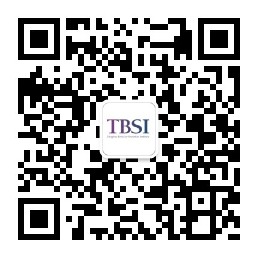The second annual TBSI Workshop on Learning Theory was held successfully at the Shenzhen Institute for Talents Development during July 20-22, 2020. This three-day workshop drew around 63 local attendees and 64 remote attendees worldwide and brought together 24 academic and industry leaders to share their vision and insight about future research in machine learning.
Eight keynote speeches were delivered by renowned researchers from University of California at Berkeley, University of Maryland, Princeton University, University of Texas at Austin, Carnegie Mellon University, Georgia Institute of Technology, City University of Hong Kong and Shenzhen University. Industry guests from established organizations like Xilinx, WeBank, Tencent, Novauto, and China Academy of Industry Internet also showcased emerging technologies in machine learning software and their hardware solutions. More than 97 students from Tsinghua SIGS, Shenzhen University and Sun Yat-sen University attended the event, showing their enthusiasm through seminar Q&As and student poster presentations.

Group photos of invited speakers, workshop organizers and staff
Despite the diverse research topics discussed during the workshop, several popular themes stood out. One of the most prominent themes was Reinforcement Learning. In the opening keynote speech, Chandrajit Bajaj,professor from University of Texas at Austin talked about how deep reinforcement learning can be used to mathematically interpret nature’s rules, namely the dynamics of molecules, which has vast applications such as protein folding and drug design. In the following talk, Geoffrey Ye Li,professor from Georgia Institute of Technology talked about their recent work that emerged from marrying deep reinforcement learning with wireless communication systems. From the theoretical side, Yuxin Chen,assistant professor from Princeton University and Yuting Wei, assistant professor from Carnegie Mellon University respectively presented their breakthroughs on the sample complexity of model-free and model-based reinforcement learning algorithms, giving better guarantees to reinforcement learning accuracy.
Enhancing learning robustness and interpretability was another highly-discussed topic in this workshop. In a speech titled “Implicit Models for Robust Deep Learning”,Laurent El Ghaoui ,professor from University of California, Berkeley described a new framework for deep learning called Implicit deep learning, which generalizes the standard recursive rules of feedforward neural networks and opens up many new possibilities in terms of novel architectures and algorithms, and robustness in their analysis and design. On learning robust low dimensional features from high-dimensional data, Ma Yi, Professor at Berkeley and TBSI told the intriguing story of how Maximal Coding Rate Reduction, a data compression principle, has evolved over the years into a unified computational framework that leads to state-of-the-art algorithms for clustering, classification, and representation learning with good interpretability.
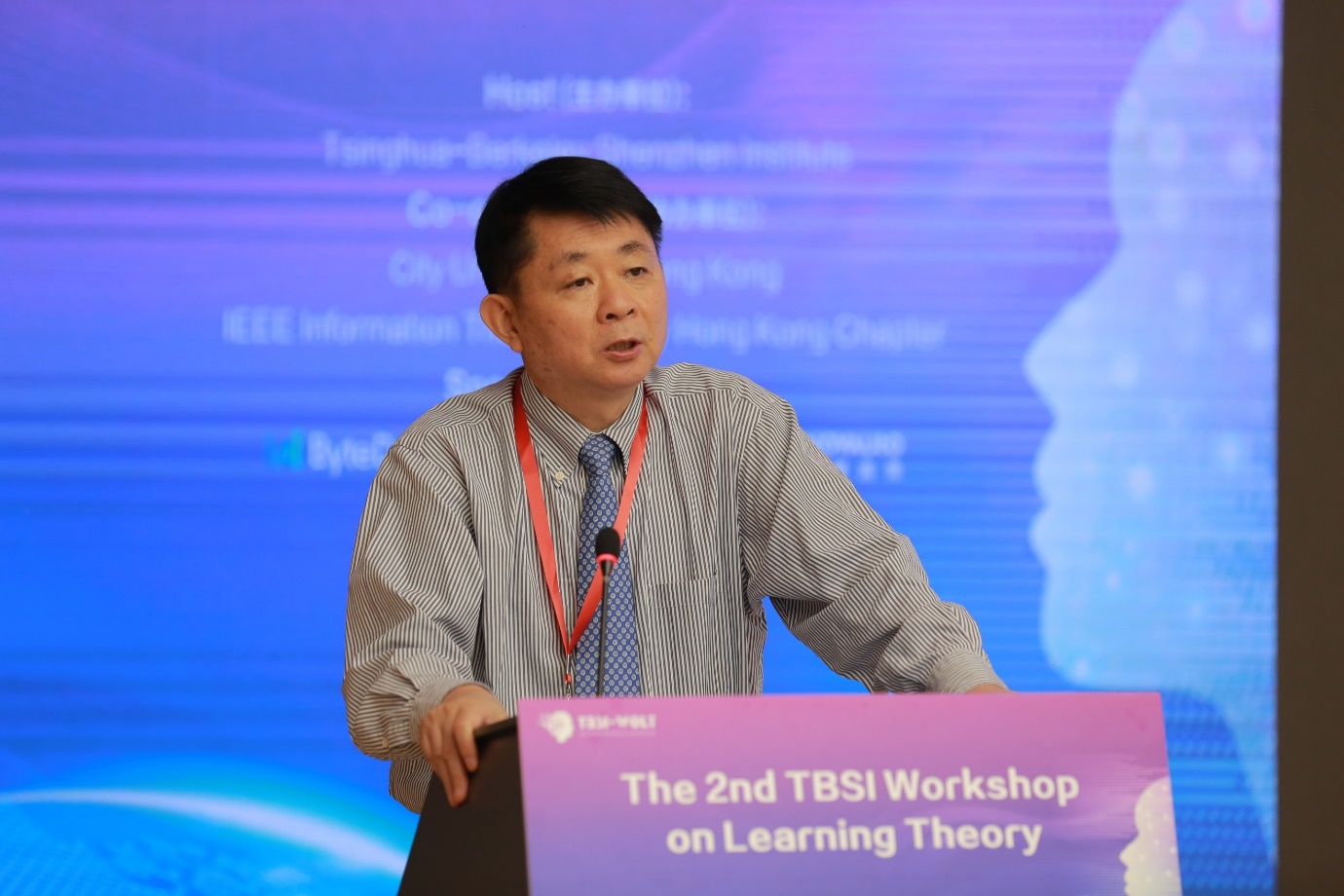
Professor Geoffrey Ye Li giving a keynote speech
Many of the presented works were centered around learning efficient and low complexity models in various problem contexts. From a statistics perspective, Ercan E.Kuruoğlu, visiting professor at TBSI presented generalized Bayesian model selection and its successful applications in time series modeling and system identification problems. On a different note, Joe Qin,professor from the City University of Hong Kong presented a new dimensionality reduction technique for dynamic latent variable analytics and its application in industrial applications. From an optimization perspective, Qing Qu, a Moore-Sloan Fellow from UMich Ann Arbor discussed global nonconvex optimization theory and guaranteed algorithms for efficient learning of low-complexity models.
Other intriguing works including learning point cloud data by Hui Huang,distinguished professor from Shenzhen University, learning mixtures and trace reconstruction by Arya Mazumdar,associate professor from UMass Amherst, automatic proof generation using convex optimization by Chee Wei TAN,associate professor from CUHK, blind adversarial learning by Xueshuang Xiang,associate research fellow from Qian Xuesen Laboratory of Space Tech, efficient multi-task learning by Qingfu Zhang,chair professor from CUHK, and stochastic linear contextual bandits algorithms by Jing Yang,assistant professor from UPenn were presented.
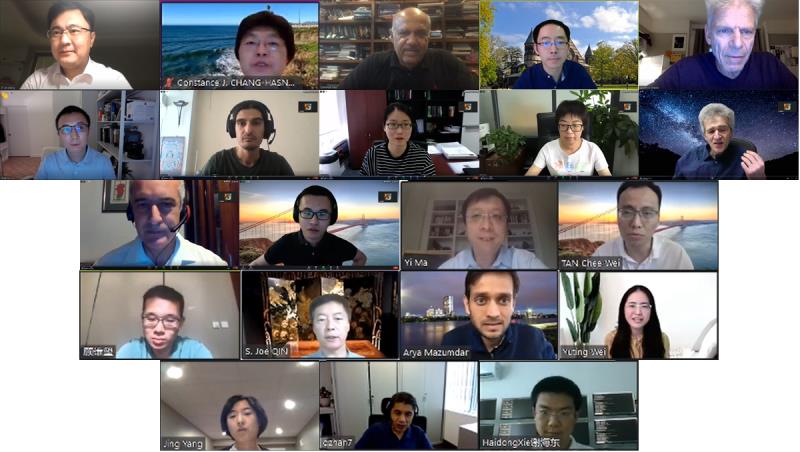
Guest speakers attending the workshop via Zoom
As with last year, this year’s WOLT featured a series of talks on the latest communication and information theory research. In his keynote speech, Alexander Barg,professor from the University of Maryland, College Park spoke about the construction of uniformly distributed subsets with a focus on the Hamming space. Itzhak Tamo, assistant professor from Tel Aviv University talked about the list-decoding problem based on Reed Solomon codes, with a tight generalized singleton bound. In addition to the theoretical works, Hye Won Chung,assistant professor from KAIST showed how XOR queries can efficiently aid classification problems on crowdsourced data. Last but not least, Xiugang Wu,assistant professor from University of Delaware presented their latest advances in using information constrained optimal transport to solve an open problem regarding channel capacity.
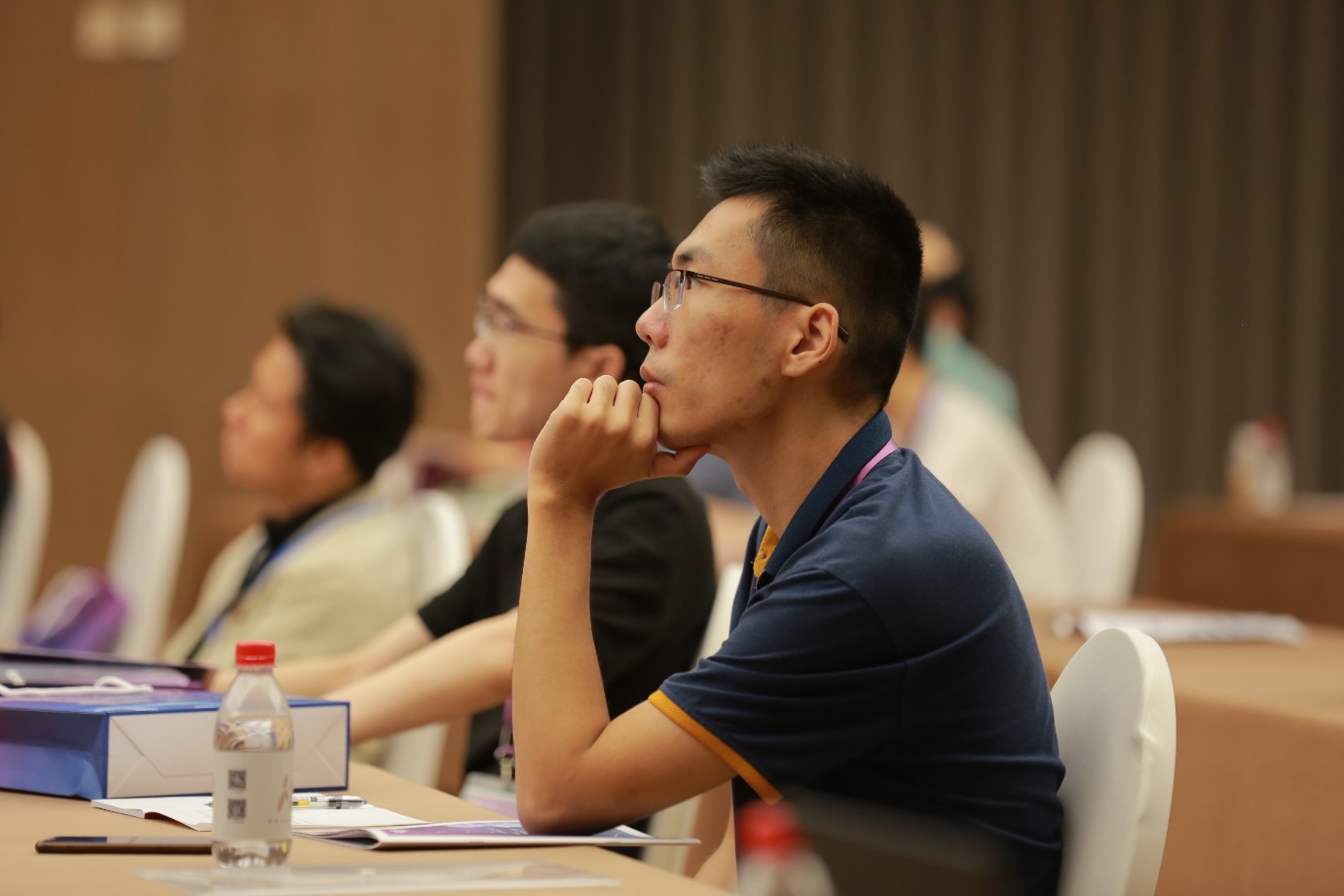
Students listening attentively
The industry session on July 21 highlighted several emerging technology trends in the big data and AI eras, such as machine learning scalability and security, deep learning platforms, and network infrastructure. Yang Liu, Principal Researcher of AI Department at WeBank, presented the key concepts and challenges of federated learning with a focus on real-world industrial applications. Baoyuan Wu,Principal Researcher from Tencent AI Lab discussed their recent black-box adversarial attack method that can fool all major face recognition APIs. On deep learning platform design, Song Yao,Senior director from AI business, Xilinx, showcased their development on a software stack that enables faster AI development; while Shuang Liang, CTO of Novauto, China presented a computing platform with hardware-aware optimizations for autonomous driving. Dr. Weixi Gu, Industrial Intelligence Research Team Leader from China Academy of Industrial Internet shared his insights on Industrial Internet, which is the new network infrastructure in China.
The workshop was successfully concluded by the student poster session on July 22 afternoon. The poster session’s theme was machine learning and data science. Six out of the sixteen accepted poster submissions were invited on stage or on the screen to give short presentations. Poster authors who could not present their works in person also gave video introductions to their works. “The poster session quality is very high,” commented Professor Kuruoğlu after the event.
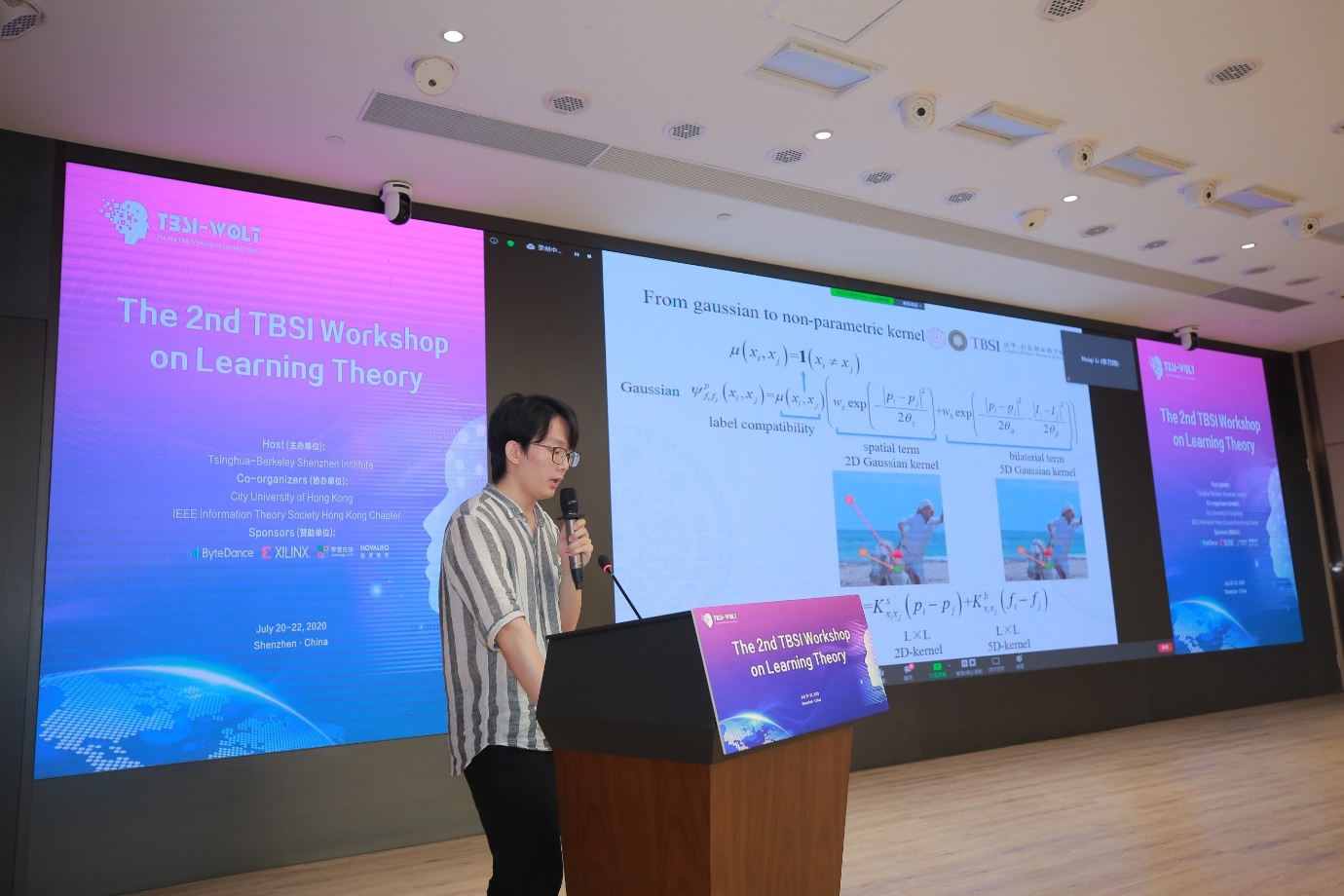
Shi Mao, master student of TBSI, is giving an oral presentation on his research.
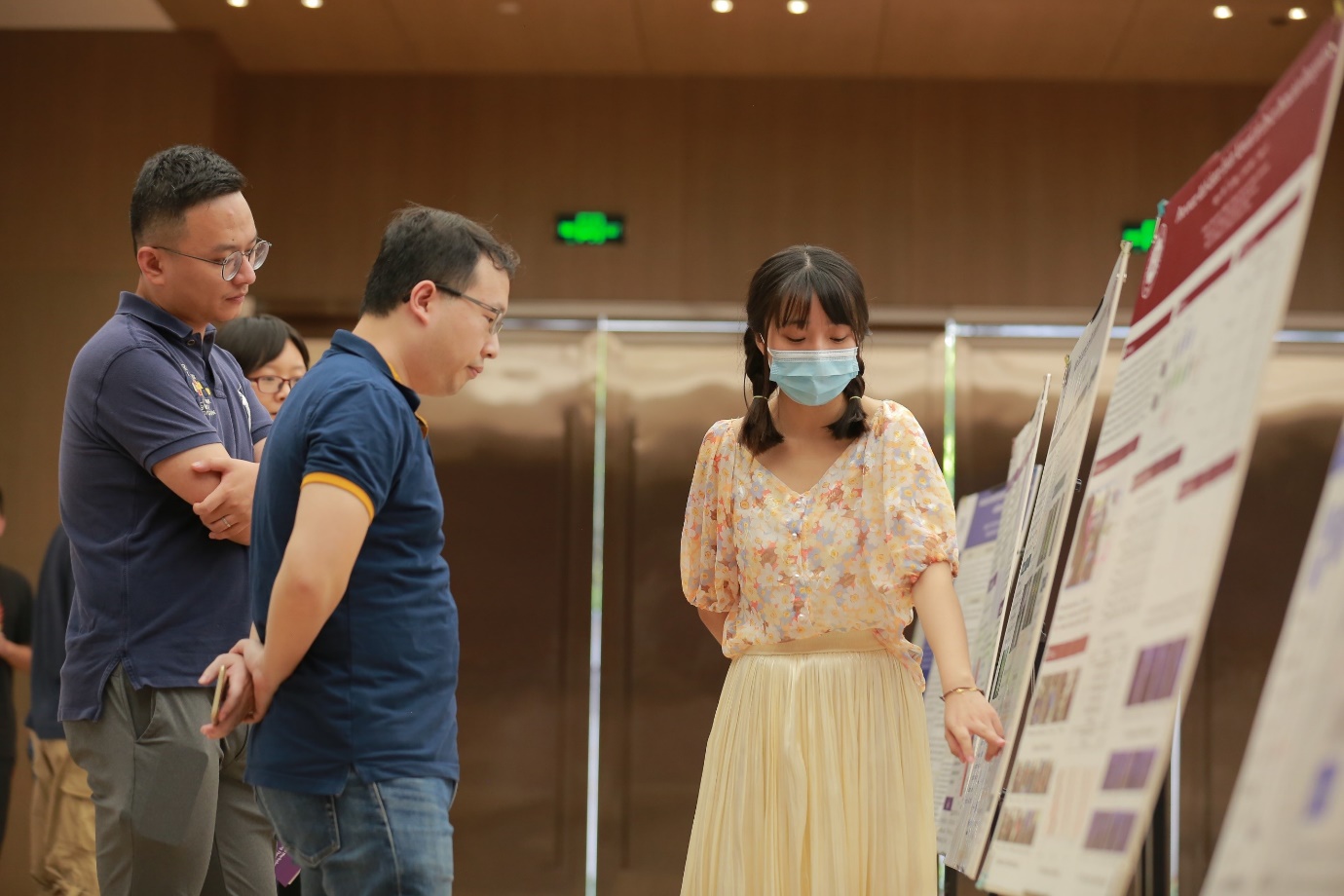
Jingyun Yang, a new student of class of 2020, introducing her poster to several professors.
We thank our co-organizers from City University of Hong Kong and the IEEE Information Theory Society Hong Kong Chapter. We also thank our sponsors ByteDance, Xilinx, XuetangX and Novauto for making this workshop possible for every local and remote participant.
Rewatch the workshop livestream on XuetangX:

https://next.xuetangx.com/live/live20200720IT001intl/live20200720IT001/4221045/6137945


